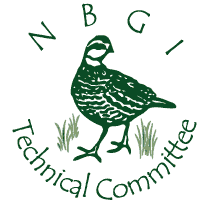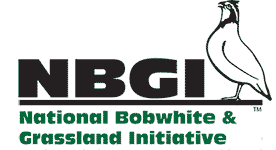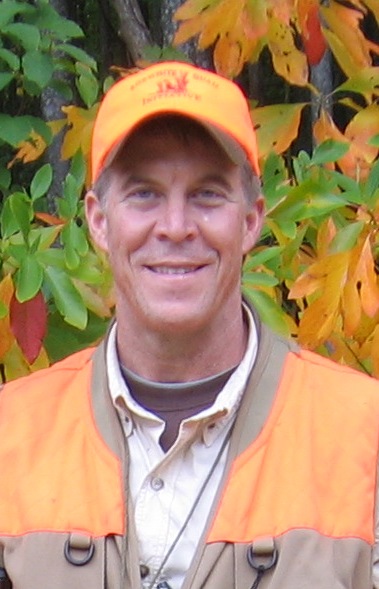REJUVENATED … in a worn-out kind of way
The 19th Annual Meeting of the National Bobwhite Technical Committee (NBTC) in Roanoke, Virginia, July 23-26, led to the most pleasant and stimulating exhaustion one can get from work. Four days of burning candles at both ends; immersed in myriad bobwhite conservation issues, opportunities and barriers; renewing friendships across the country; meeting new friends and partners … it can’t get any better.
The Virginia Department of Game and Inland Fisheries (VDGIF) provided superb hospitality and facilities in a splendid setting. My thanks to the many VDGIF staff who made invaluable contributions. Marc Puckett, VDGIF small game coordinator, pulled amazing double duty as the organizer of the entire meeting and as the chair of the NBTC. Consequently, he had to plan and oversee the NBTC meeting for 125 people, while planning and executing the NBTC Steering Committee’s heavy business meetings the first and last days. Cheers, Marc, and thank you!
VDGIF Executive Director Bob Duncan participated two days, with a few of his agency’s board members – including Jimmy Hazel, the newest member of the Bobwhite Foundation’s Development Board – who are as passionate about quail as any of us professionals, and who fervently support their agency’s Quail Action Plan. Duncan provided inspiring comments and a potent show of political support for quail conservation that any state agency quail biologist would envy.
Other highlights of the week:
- The prospect of increased Pittman-Robertson funding from the bobwhite states to support the central NBCI operation generated animated discussion and progress. The U.S. Fish and Wildlife Service’s Southeast Chief for the P-R program, Mike Piccirilli, joined the steering committee for an in-depth analysis of the details, and provided counsel on moving forward.
- The 3rd annual NBCI Coordinators’ Workshop was attended by 22 of the 25 state quail coordinators, for an intensive review of the nearly complete NBCI Focus Area Program, a project of the NBTC Research Subcommittee. When complete by the end of 2013, the Focus Area Program will provide a fertile platform from which to launch NBCI implementation and accountability to new levels in many states.
- The long-postponed NBTC Mined Lands Subcommittee met for the first time, with the leadership of David Ledford, a longtime quail manager and friend of the NBCI, and now CEO of the Appalachian Wildlife Foundation. More than a dozen stakeholders, including industry representatives and other reclamation experts, gathered to begin developing strategies to foster collaboration and progress in improving grassland and early-successional habitats on mined lands.
- The NBTC Annual Award was presented by his peers to Thomas V. Dailey, in recognition and appreciation of his long career of leadership in quail conservation. Prior to being the NBCI assistant director / science coordinator, Tom retired from the Missouri Department of Conservation as a quail and turkey research scientist, with emphasis on human dimensions of conservation.
- The NBTC Group Achievement Award was presented to the Kansas State Offices of the USDA Natural Resources Conservation Service and the USDA Farm Service Agency for their roles in insisting that most of the state’s Conservation Reserve Program acreage be planted in native grasses, a decision that resulted in stable or increasing populations of bobwhites as well as expanding range and populations of lesser prairie chickens.
- While in Roanoke, the NBTC Outreach Subcommittee totally revamped and expanded the NBTC’s awards program, to recognize many more stand-out contributors to bobwhite conservation across the states, elevate the stature of the recipients, and increase the public profile of the NBCI.
- The NBTC Agriculture Policy Subcommittee met with Galon Hall, NRCS National Program Leader for the Working Lands for Wildlife Program, to better incorporate quail habitat into the WLFW program.
- The USDA Forest Service, the VDGIF and the Appalachian Mountains Joint Venture sponsored a field trip to the forested mountains that seem at first glance an unlikely quail landscape. Many eyes were opened to the possibility that vigorous, purposeful management can provide real-world restoration of huntable quail populations, as well as other priority wildlife such as golden-winged warblers and woodcock.
- Finally, the cultural highlight of the week was provided at the welcome social by young musician Jesse Black, son of NBCI Forestry Coordinator Mike Black. Jesse regaled the crowd with singing and playing multiple instruments, while enticing a few NBTC wannabes to step up and join him.
Now we are back, tackling the long to-do lists of bobwhite conservation issues, barriers and opportunities highlighted by our brainstorming in Roanoke. Next year, in Iowa, we do it again, from a position a few steps ahead of where we were in Roanoke, thanks to the work done there, and subsequently, by the NBTC membership, its subcommittees, and by the NBCI staff.
-August 1, 2013


